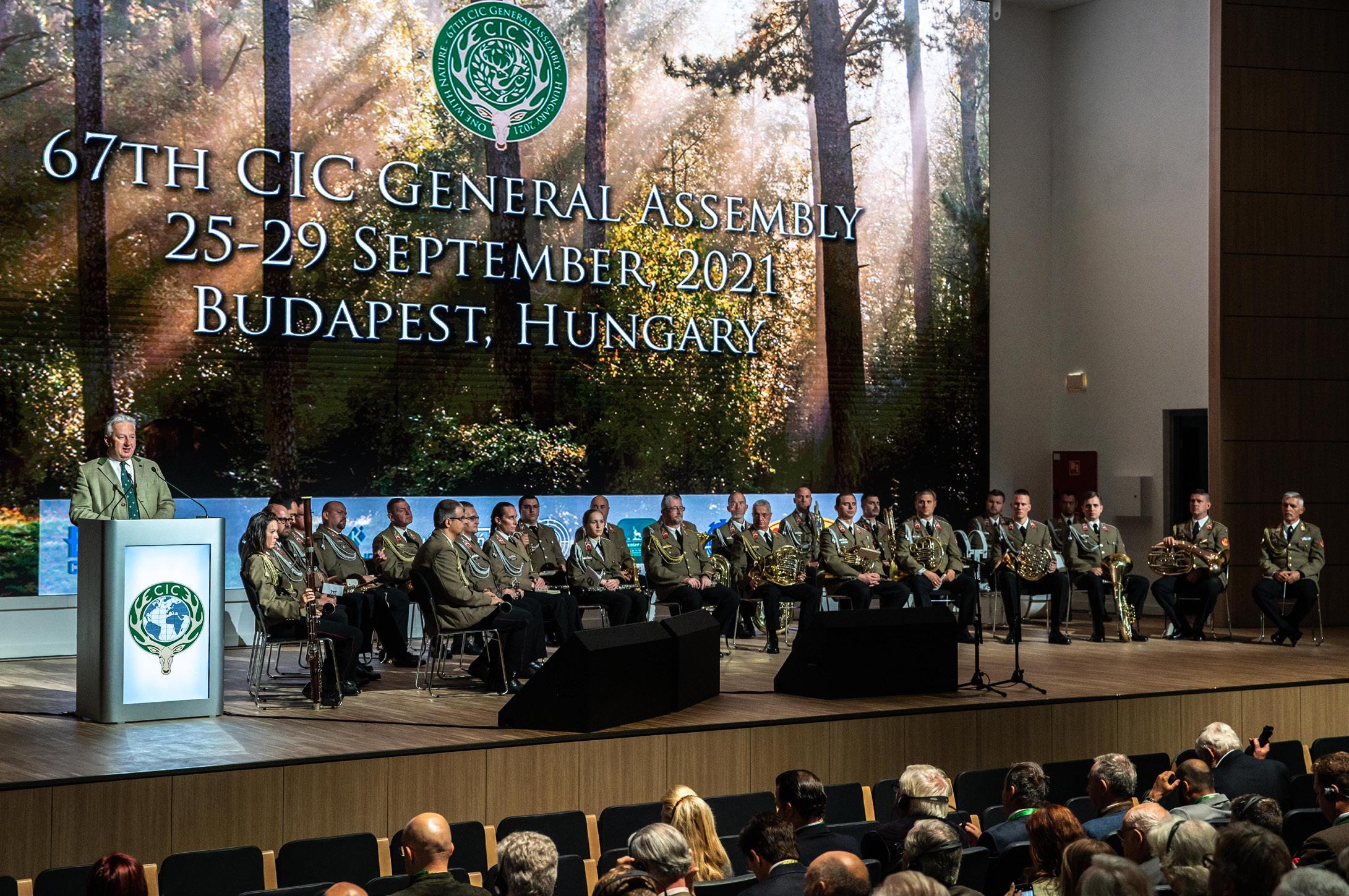
9 minute read
Focus
from CIC Magazine 2021/2 - English version
by International Council for Game and Wildlife Conservation (CIC)
67th General Assembly of the CIC: Opening Ceremony
On 26 September, 2021 the 67th General Assembly of the CIC officially kicked off in Budapest, Hungary. The event, which was held under the theme of “One with Nature – Rural Voices, Global Responsibilities,” took a look at the importance of our rural areas, and the ways in which the CIC and the wider sustainable use community can build alliances in this field.
Kicking things off was the Hungarian Defense Forces Central Military Band, which played the CIC Hymn and the Hungarian national anthem as part of the CIC’s Flag Ceremony. The CIC’s delegation of Hungarian Hussars (light cavalry) was also on stage as part of the official handling of the flags. Honorary President of the CIC (CIC President at the time), George Aman, then gave an opening speech in which he thanked Dr. Zsolt Semjén (Deputy Prime Minister of Hungary) and Kovács Zoltán (Government Commissioner of OWN) for making the event happen despite the circumstances of the global pandemic. He went on to thank everyone in attendance and wished them all a pleasant time at the conference.
Dr. Semjén then took the stage to talk about the changes we have seen in attitudes towards hunting when compared to Hungary’s first World Hunting Expo in 1971, and our need to take proactive measures in preserving hunting culture. He also highlighted Hungary’s pyramid approach towards hunting preservation, which consists of large international events (like One with Nature) at the top, regional exhibitions in the middle and events for local communities at the base.
He concluded by discussing Hungary’s relationship with the CIC, making particular mention of the CIC’s 1 Euro per Hunter initiative, which Hungary joined three years ago – he also confirmed the country’s commitment to the initiative going forward. Finally, he thanked the CIC for its preparatory work for the exhibition, as well as the hunting events that Hungary has hosted over the years.
CIC Director General, Tamás Marghescu, then awarded the Deputy Prime Minister with the CIC Order of Merit in recognition of his invaluable services to global wildlife conservation.
Freiherr Philipp von und zu Guttenberg, renowned farmer and forester from Austria, then gave his opening remarks, in which he emphasised our need to create alliances with stakeholders in rural areas. In order to preserve our rural areas, and in turn preserve hunting for future generations, he put forward a threefold approach; reunite rural forces, clear out our own closet, and come up with a common narrative suited to today’s world. To close the ceremony, Head of the French Delegation, Emmanuel Michau, presented an award made in honour of Willy Schraen, President of the French National Hunters Federation (FNC). The award was given in recognition of a book authored by Willy Schraen on hunting, rurality and rural areas.
As Willy Schraen was unable to attend the event, the award was accepted on his behalf by Vice- President of FNC, Alain Durand. He spoke on behalf of the author, stating that the book was written to show what hunting and rurality meant to him, with the overall objective of protecting rurality. Giving France and FNC as an example, he underlined how hunters cannot continue as they currently are without placing rurality as their central issue of concern.
To conclude the Opening Ceremony, the Hungarian Defense Forces Central Military Band played a closing march for the attendees.
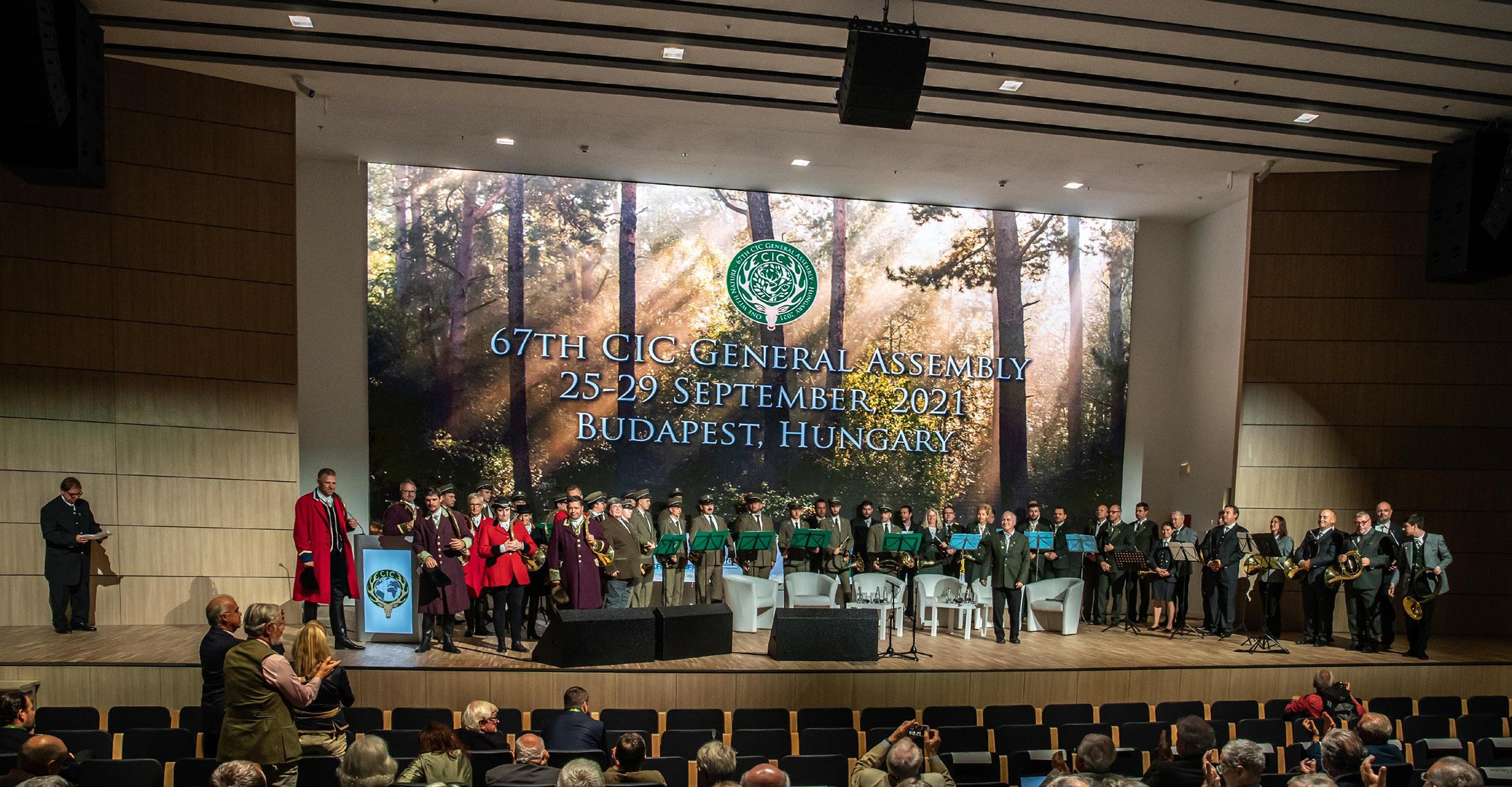
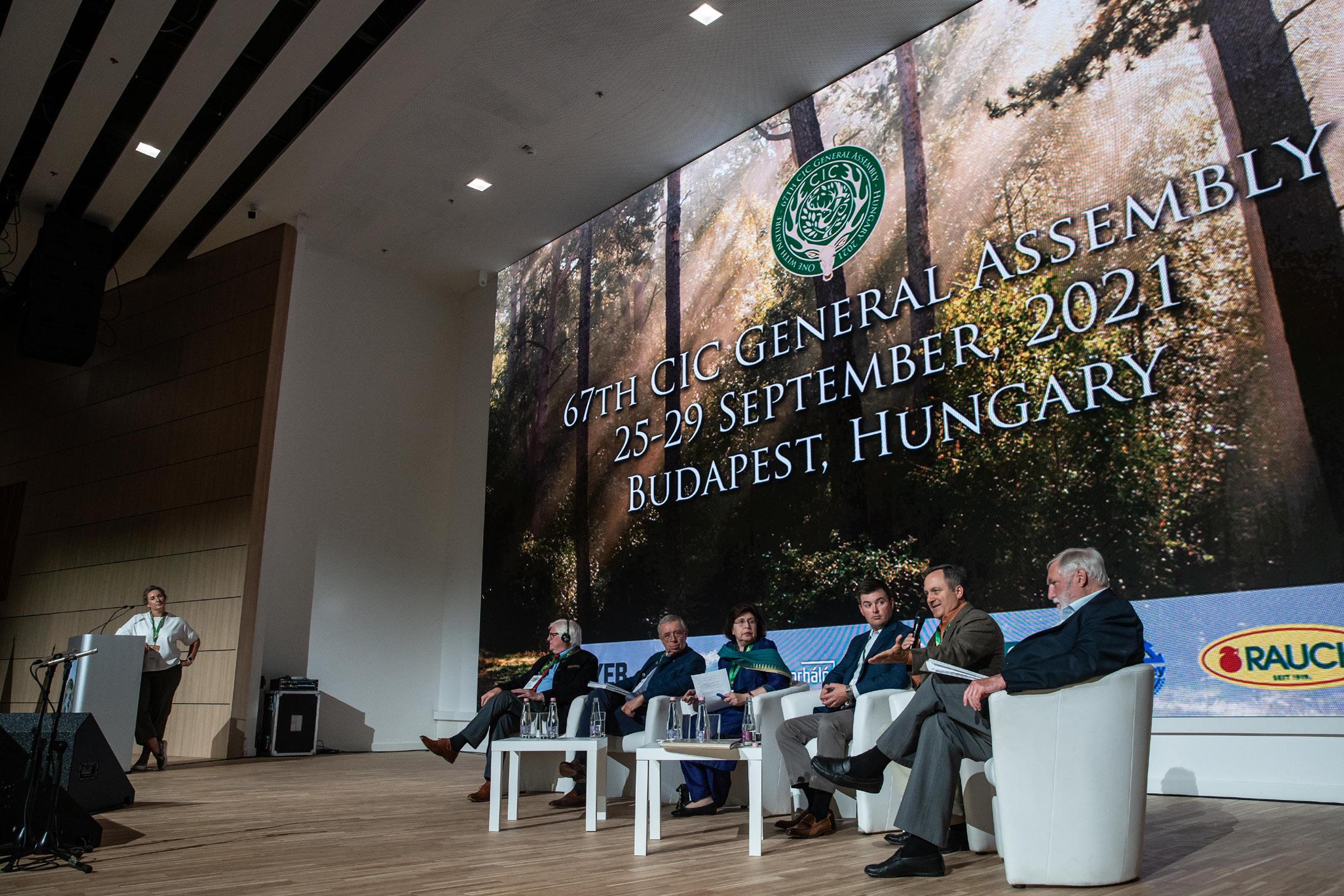
Technical Session I: Visions for the Countryside
The first technical session of the 67th General Assembly was “Visions for the Countryside,” and was moderated by Danene van der Westhuyzen, President of the Namibia Professional Hunting Association (NAPHA).
The aim of this session was to explore the current state of the countryside, the rural-urban divide, as well as how these issues may develop in the future.
Danene van der Westhuyzen gave an opening speech, and talked about her experiences growing up in Namibia. She mentioned the safaris there that are so loved, which is contrasted by the realities of the rural inhabitants often working behind the scenes.
After this, the session moved onto a panel discussion format. The panellists in attendance were: %Thierry de L’Escaille (Secretary General of the European Landowners Organisation, ELO), Alain Durand (Vice President of the French National Hunters Federation, FNC), Aban Kabraji (OWN Ambassador for Pakistan. Former Regional Director for IUCN Asia), Sean McLelland (Executive Director of the Outdoors Tomorrow Foundation), Scot Mcclure (Director of Education of the Outdoors Tomorrow Foundation) and Franz Fischler (President of the European Forum Alpbach).
The session started with the panellists discussing how the countryside looks in their respective countries and regions. Franz Fischler outlined the state of the countryside in Europe and how, due to the limited spaces available in European countries, industries such as hunting, agriculture and forestry often share spaces and resources. In this context, the importance of fostering relationships and dialogue was emphasised, despite how difficult it may be. It was suggested that large scale issues, such as climate change, may be a force that can bring these rural stakeholders together.
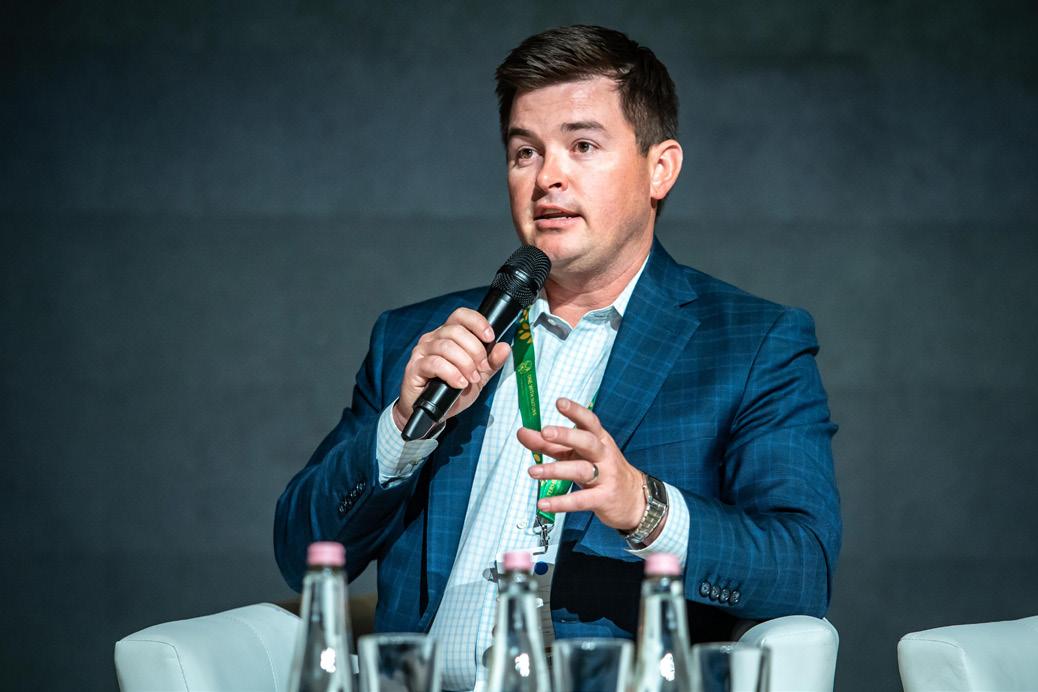
Aban Kabraji, who has worked extensively in Asia, commented that values are integrated with culture, economics and traditional land use patterns. For impoverished countries, it was stated that the values associated with the countryside can be changed, such as through the use of hunting programs. Fauna that was previously seen as food can instead be turned into more beneficial, which has the added impact of incentivising communities to conserve rural spaces.
When discussing the current work that takes place in preserving the interests of the countryside, Thierry de L’Escaille noted how rural livelihoods are largely supported by private actors. It was suggested that we should reject the outdated philosophy of introducing burdensome regulations to fix rural issues, which would allow these actors to carry out their duties effectively. Recognising the work of private actors, such as through the ELO Wildlife Estates label, was put forward as another measure to support such organisations.
Giving the perspective of the rural stakeholders was Alain Durand, who discussed the need to define the term rurality. While people often think of hunters when they hear the term, he stressed that there are many other rural stakeholders in the countryside; fisherfolk, farmers, entrepreneurs, health care providers and more. He described the common feeling of not being understood by outsiders amongst the stakeholders, and their desire to jointly protect rural values and heritage.
With a view to the future, Scot Mcclure and Sean McLelland talked extensively about the work of their organisation, Outdoors Tomorrow Foundation, and how it helps bridge the ruralurban divide through education. The Outdoors Tomorrow Foundation looks to educate children on wildlife conservation through a gym class, introducing them to fishing, archery, orienteering, and hunting through practical means and games. Through their work, which teaches wildlife conservation to a degree far beyond the US school curriculum, they found that the youth did become engaged in wildlife issues when taught in this manner.
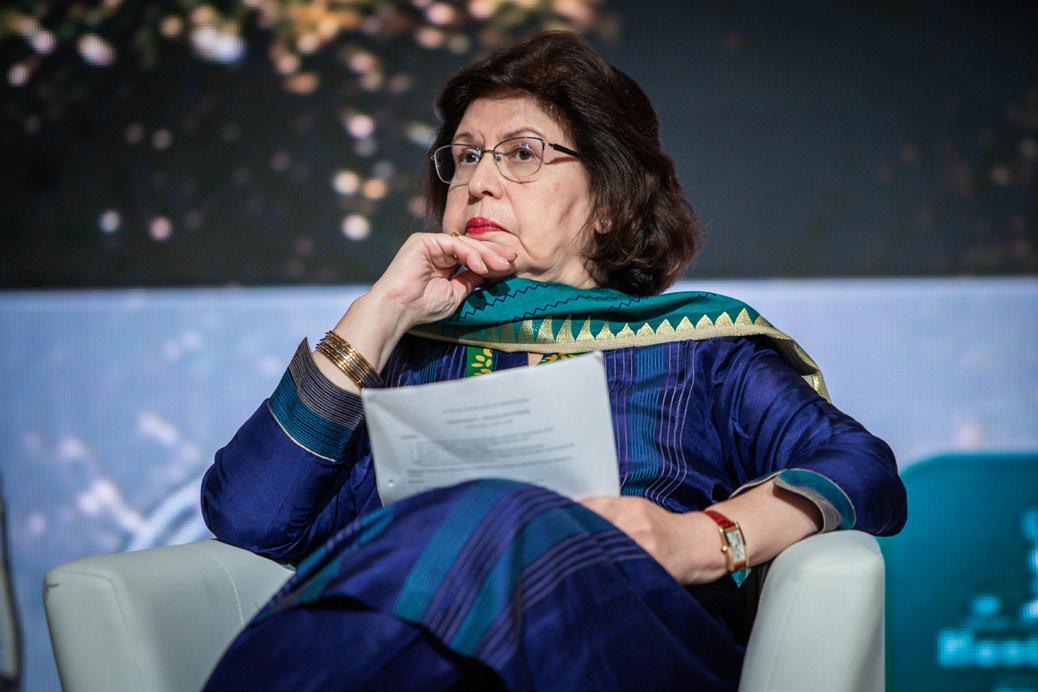
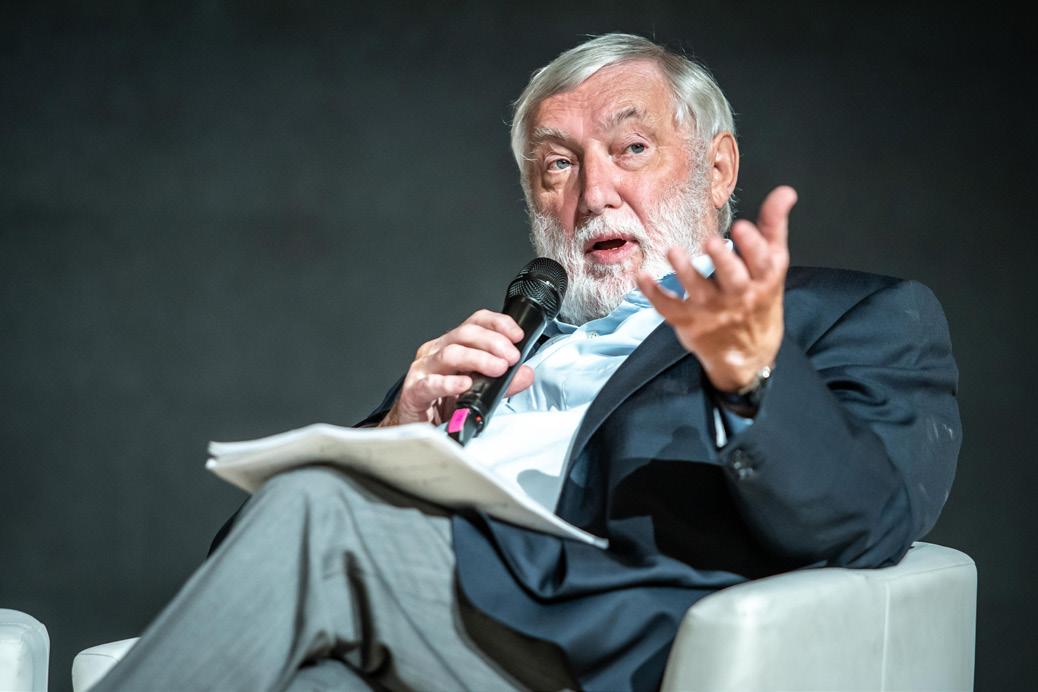
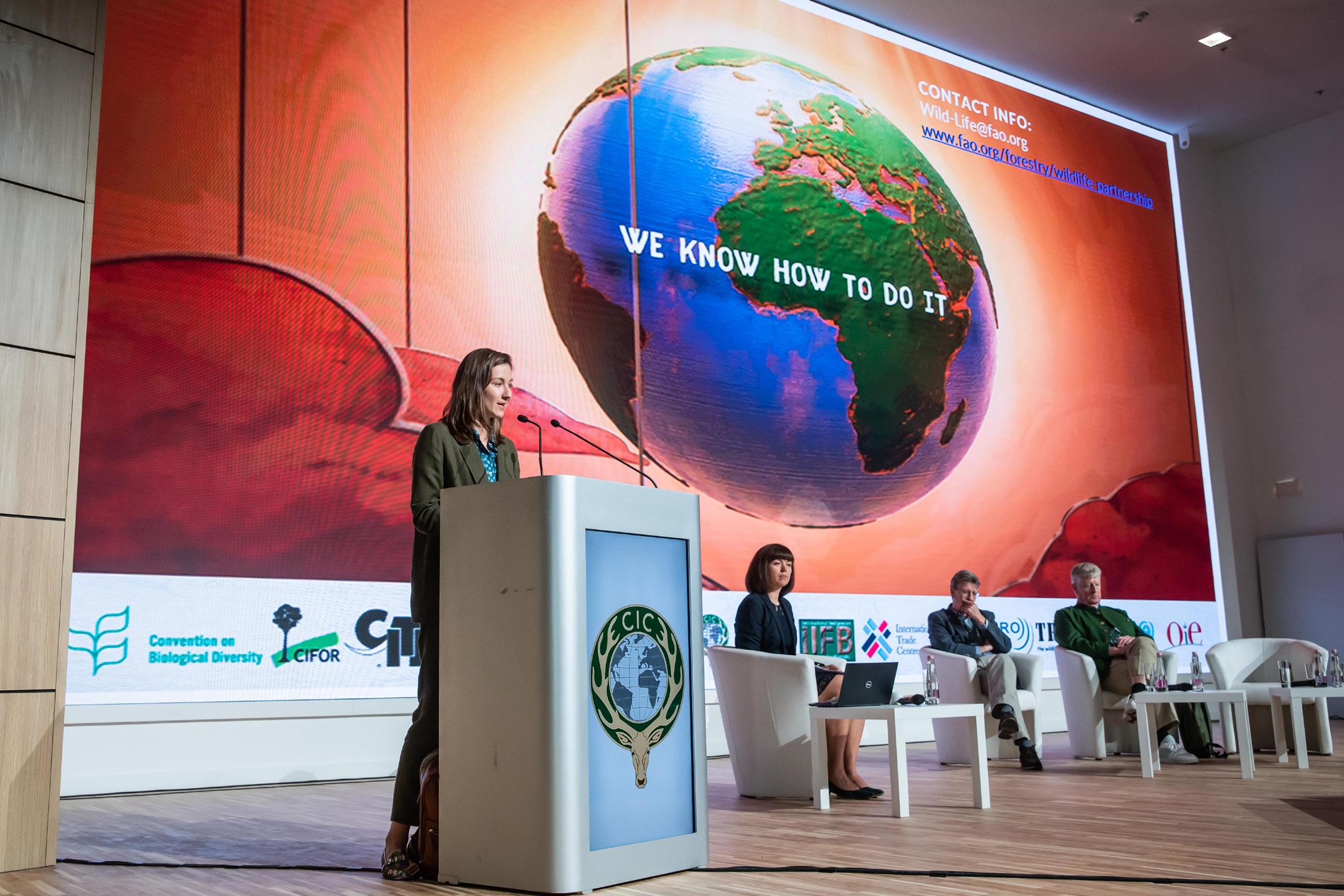
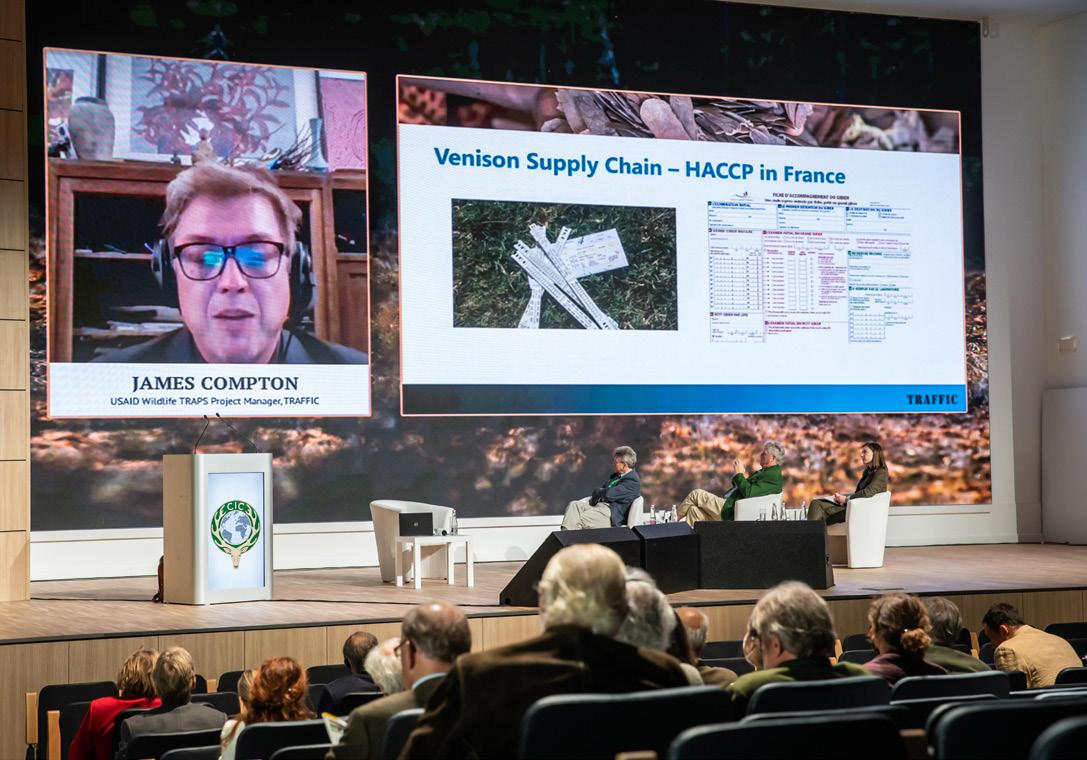
CPW Wildlife Forum Technical Session: Zoonotic Diseases and the One Health Approach
The second Technical Session of the 67th General Assembly was hosted within the framework of the Third Wildlife Forum of the Collaborative Partnership on Wildlife (CPW).
The session was moderated by Anastasiya Timoshyna, a Senior Programme Coordinator on Sustainable Trade from TRAFFIC.
The panel brought together experts of different backgrounds representing different organisations, namely: Dr. Richard Kock (Royal Veterinary College, UK and IUCN SSC wildlife Health Specialist Group), Kristina Rodina (Forestry Officer for Wildlife and Protected Areas at the Food and Agriculture Organization of the United Nations), Dr. Tiggy Grillo (Scientific officer of Wildlife Health Programme at the World Organization for Animal Health, OIE. National Coordinator of Wildlife Health Australia),
Dr. Hadrien Vanthomme & Dr. Marie-Marie
Olive (Researcher of management of nature resources and landscapes forest and society unit of CIRAD & Researcher of epidemiology of arboviral and zoonotic diseases with CIRAD respectively), Count Prof. Torsten Mörner (Head of Wildlife Disease and Game Meat Specialist Group at the International Council for Game and Wildlife Conservation, CIC), and James Compton (USAID Wildlife TraPS Project Manager from TRAFFIC).
The session focused on emerging zoonotic diseases, and looked at challenges, risks and opportunities in addressing them. The experts discussed the major role of domestic animals in disease transmission. It was mentioned how diseases transmitted specifically by wildlife are not as common as many believe. The session also focused on identifying specific supply chains and identifying points of intervention in order to reduce the risk of disease emergence.
In his presentation, Dr. Richard Kock highlighted that wild mammal and bird trade is dwarfed by trade in domestic animals, which is where the main zoonosis risks lie. He mentioned that wildlife in situ is only a rare source of zoonosis and that emerging diseases have anthropogenic drivers. Dr. Kock advised that we should reduce the biomass of our protein sources and reduce the number of domestic animals including domestic pets.
Kristina Rodina outlined the four guiding principles and the mission of CPW. In her presentation she emphasised that indigenous peoples and local communities actively use wildlife in their everyday life. She stressed that the involvement of indigenous peoples and local communities in policy response is low, and their cultures are not well addressed. Ms. Rodina underlined the importance of them being involved in policy making and being invited to international meetings.
Similarly, Dr. Tiggy Grillo talked about the Ad Hoc Group of Experts which also identified frontline personnel/practitioners as a key target group for practices on risk reduction and intervention, whereas National government authorities with mandates for animal health, public health, wildlife management, wildlife trade and enforcement were identified as key groups to target to provide risk assessment information, monitoring and evaluation in capacity gap analyses.
The presentation of Dr. Hadrien Vanthomme and Dr. Marie-Marie Olive brought forth the idea that, due to weak legal frameworks, we are seeing wildlife population depletion, local communities with weak capacities and right, informal value chains, increased urban demand and a lack of alternative meats. Therefore, it is important to reconcile community rights and cultural identity with the management of zoonotic risk and the protection of natural resources.
Reflecting on the previous point, Count Prof. Torsten Mörner emphasised the crucial work that hunters have been carrying out that directly relates to the four guiding principles to reduce risks from zoonotic diseases, outlined in the joint CPW publication ‘The COVID-19 challenge: Zoonotic diseases and wildlife.’ In his discussion he stressed that hunters need to be invited to the discussions concerning the monitoring and mitigation of the risk of new disease emergence.
In his presentation, James Compton stressed that in order to develop practical solutions for wildlife trade and disease risk management, we need to understand context specific factors. The importance of identifying high-risk interfaces and combining interventions was mentioned, including policy reform, compliance and law enforcement, one health coordination, risk assessment and mitigation measures, supply chain management and traceability, as well as social behavioural change.
Building on the presentations delivered by the panellists, the questions that were put forward focused on how to move from theoretical ideas to practical solutions. It was agreed by the experts that the necessary knowledge is already available and that it is important to continuously monitor the current situation and understand what risks are present, as well as implement the mechanisms that are already in place. It was also agreed that communication between different bodies, such as veterinarians, hunters, NGOs, governments, and authorities is essential.


